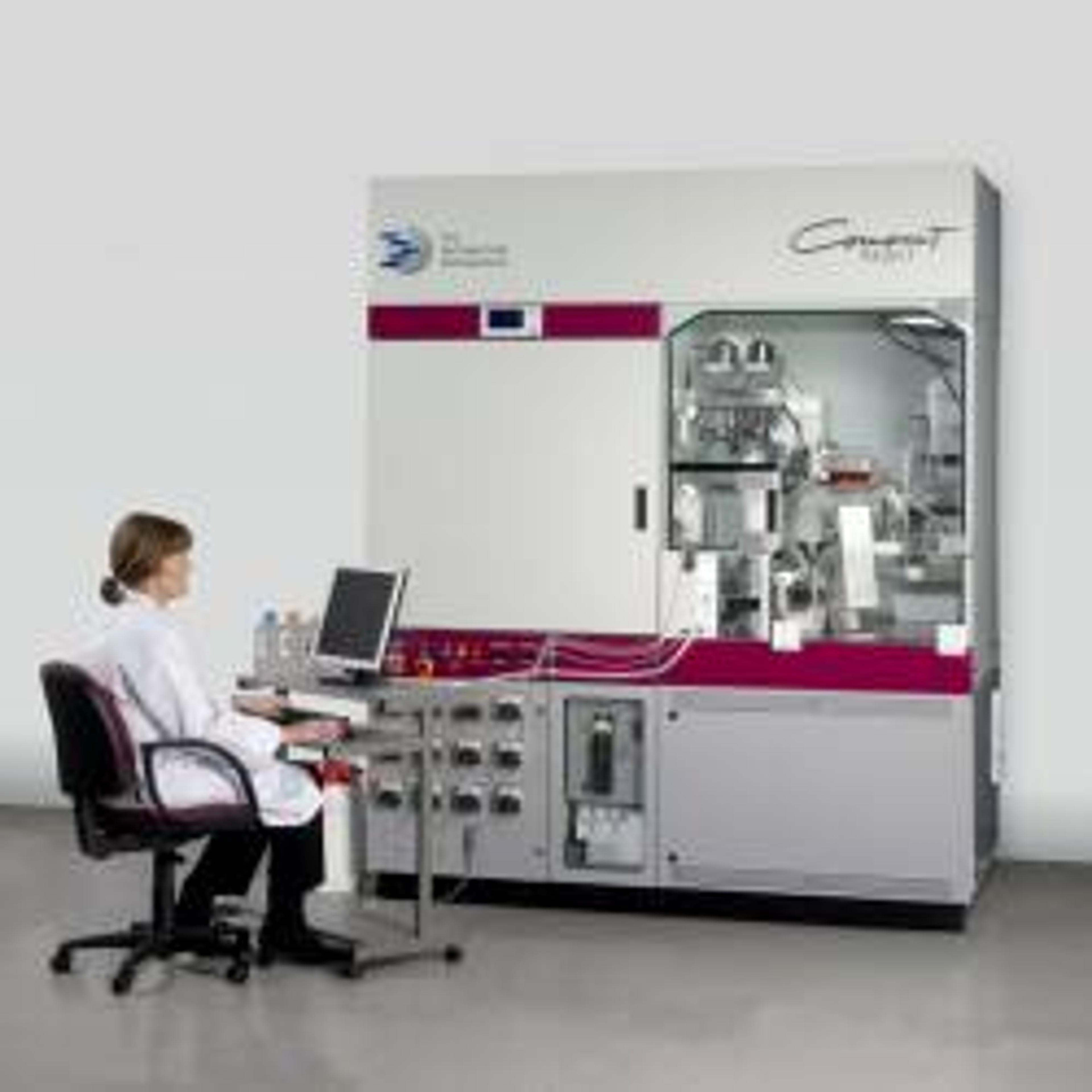World’s First Programme to Automate Pleuripotent hES Cell Culture Chooses CompacT SelecT as its Cornerstone
2 May 2007The Automation Partnership (TAP), a world leading manufacturer of automation for life science applications, is pleased to announce that ITI Life Sciences, Scotland’s commercial organisation focussed on driving innovation in the life sciences sector, in partnership with major Swedish stem cell firm, Cellartis AB, will use a CompacT SelecT™ automated cell culture system to develop a consistent bioprocess for manufacturing high-quality undifferentiated human embryonic stem (hES) cells.
The CompacT SelecT will be used as part of a unique £9.5 million ITI Life Sciences driven stem cell research programme. The programme, which will be run at the newly opened Cellartis facility in Dundee, Scotland, will look at automating Cellartis’ pleuripotent hES cell scale up and differentiation protocols and is the first in the world to undertake this ambitious research.
The CompacT SelecT can perform automated cell passage and processing with ease as the system can be programmed to process cells on demand unattended every day, even at night or over weekends.
The Compact SelecT being used on the ITI programme is suited for culturing high quality hES cells because it maintains a consistent environment, which is critical when trying to maintain undifferentiated hES cells. Additionally, since CompacT SelecT can be used to culture different cell lines in tandem, this means scientists on the ITI programme will save time by growing the feeder cell layer upon which they seed their HES cells at the same time as different batches of hES cells.
Fergus McKenzie Ph.D., Programme Manager at ITI Life Sciences, commented: “We want to manufacture hES cells on a commercial scale because there is a huge, untapped market for robust hES cells for use in drug screening. To scale up hES cells we need to eliminate variability as much as possible and set up a consistent bioprocess. Since undifferentiated hES cells are notoriously difficult to culture and maintain in this state, we felt automation was essential for providing the consistent conditions required to achieve our goal.”
Dr McKenzie continued: “We reviewed systems from a number of other automation companies and chose the TAP system because the CompacT SelecT and its larger brother, the SelecT, we believed were the ones on the market that met our needs at present and also provided for future expansion.”
Phil Offin, Cell Culture Product Manager at TAP stated: “We are proud to have our CompacT SelecT system at the heart of a cutting edge stem cell programme. ITI Life Sciences’ decision to use a CompacT SelecT is an excellent endorsement of the reputation of TAP’s technology to grow even the most difficult cell line in a reproducible manner. The success of this programme could change the way we approach stem cell culture forever, by making it a straightforward bioprocess using a CompacT SelecT. ITI Life Sciences’ research could be key to opening the door to many drug discovery research applications, as well as therapeutic uses of hES cells.”

